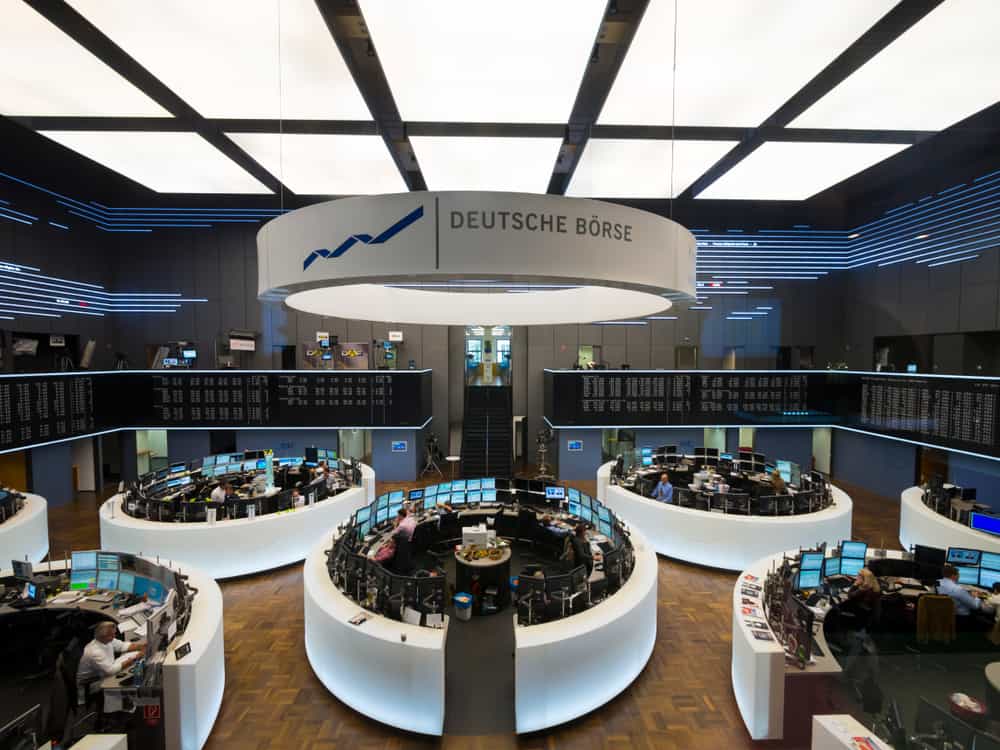Deutsche Boerse to Roll Out Crypto Custody for Institutions in 2025
11.03.2025 16:00 1 min. read Alexander Stefanov
Deutsche Boerse’s Clearstream is set to offer cryptocurrency custody and settlement solutions to institutional clients, starting in 2025.
This expansion comes as demand for secure, regulated digital asset services grows.
By April, Clearstream plans to support custody for Bitcoin (BTC) and Ethereum (ETH) through its Swiss subsidiary, Crypto Finance AG, which Deutsche Boerse took majority control of in 2021.
Clearstream’s services will be available to its extensive client base of over 2,500 institutions, and future plans include adding other cryptocurrencies, as well as services such as staking, lending, and brokerage.
Jens Hachmeister, head of issuer services and new digital markets at Clearstream, emphasized that the goal is to provide an all-encompassing platform for digital asset management, with services spanning custody, trading, and settlement.
This launch comes in line with the broader European regulatory push, particularly following the full implementation of the Markets in Crypto-Assets Regulation (MiCA) in late 2024.
Clearstream’s move also follows closely behind Boerse Stuttgart Digital Custody’s achievement in becoming Germany’s first licensed crypto asset service provider under MiCA, marking another step toward regulated crypto infrastructure across Europe.
-
1
Veteran Trader Peter Brandt Shares Simple Wealth Strategy with Bitcoin at Its Core
30.06.2025 15:00 2 min. read -
2
Second Largest Bank in Spain Rolls out in-app Bitcoin and Ethereum Trading
07.07.2025 15:30 2 min. read -
3
UniCredit to Launch Structured Product Tied to BlackRock’s Spot Bitcoin ETF
01.07.2025 17:53 1 min. read -
4
10,000 Dormant Bitcoin Moved After 14 Years: Volatility Ahead?
04.07.2025 20:00 2 min. read -
5
Saylor’s Strategy Halts Bitcoin Buying After Historic Accumulation
07.07.2025 17:00 2 min. read
Tim Draper Predicts Bitcoin Will Replace U.S. Dollar
Tim Draper isn’t just betting on Bitcoin—he’s forecasting the death of the U.S. dollar.
U.S. Public Pension Giant Boosts Palantir and Strategy Holdings in Q2
According to a report by Barron’s, the Ohio Public Employees Retirement System (OPERS) made notable adjustments to its portfolio in Q2 2025, significantly increasing exposure to Palantir and Strategy while cutting back on Lyft.
Key Crypto Events to Watch in the Next Months
As crypto markets gain momentum heading into the second half of 2025, a series of pivotal regulatory and macroeconomic events are poised to shape sentiment, liquidity, and price action across the space.
Here is Why Stablecoins Are Booming, According to Tether CEO
In a recent interview with Bankless, Tether CEO Paolo Ardoino shed light on the growing adoption of stablecoins like USDT, linking their rise to global economic instability and shifting generational dynamics.
-
1
Veteran Trader Peter Brandt Shares Simple Wealth Strategy with Bitcoin at Its Core
30.06.2025 15:00 2 min. read -
2
Second Largest Bank in Spain Rolls out in-app Bitcoin and Ethereum Trading
07.07.2025 15:30 2 min. read -
3
UniCredit to Launch Structured Product Tied to BlackRock’s Spot Bitcoin ETF
01.07.2025 17:53 1 min. read -
4
10,000 Dormant Bitcoin Moved After 14 Years: Volatility Ahead?
04.07.2025 20:00 2 min. read -
5
Saylor’s Strategy Halts Bitcoin Buying After Historic Accumulation
07.07.2025 17:00 2 min. read


